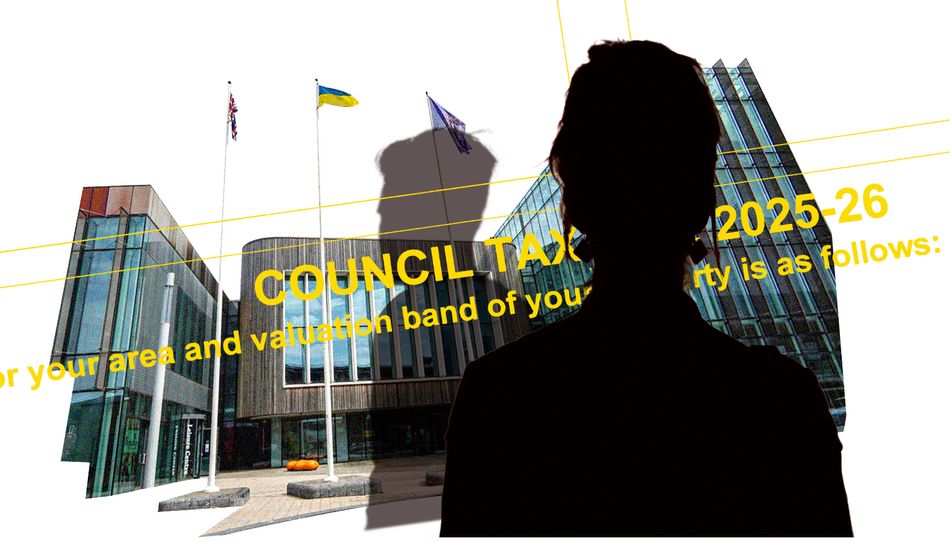There is a small army of local politicians in England—around 16,000 in total, more than half the size of the Royal Air Force. Like your correspondent, most are ordinary people serving their communities part-time for modest compensation. Councillors spend their time trying to change the world—or their local area, at least—one pothole, litter-pick or fly-tip at a time. And they face the same pressures as their constituents, such as insecure work, family breakdown, illness and the high cost of living.
Still, the standards we expect from locally elected representatives are high, and rightly so—just as they are for our more handsomely paid MPs. Councillors are entitled to privacy, but the public also has a right to know about the people they vote into power, and that should include any indebtedness. Being subject to a bankruptcy order disqualifies aspiring councillors from holding office, and they must declare their interests once elected (the property they own and who their employer or what their business activity is). During their tenure, councillors are not entitled to set rates of council tax if they are in two months or more of arrears.
But councillors are not legally required to inform the authorities they serve or their constituents if they are in debt. That means that councillors who are in debt over council tax could, in theory, be setting rates of a tax they themselves have not paid in full. This has the potential to corrode public trust and fuel populist narratives that politicians are in it for themselves.
Optics matter, and the current regime is flawed. There is no real record-keeping on local representative indebtedness, and authorities have no power to force councillors to declare their debts. The scale of councillors who are in some form of debt is, as a result, likely to be much higher than we know.
Investigations by Bolton News and the Liverpool Echo have found councillors in debt over unpaid council tax. A decade ago the former Bolton News journalist Dale Haslam took legal action against Bolton Council to force the authority to disclose the names of its members who owed money to the council. Haslam won. The authority cited the representatives’ right to privacy enshrined in Article 8 of the European Convention on Human Rights (ECHR), but it was determined that naming councillors was in the public interest. The likes of Reform UK, which now controls 13 councils and two mayoral authorities, would have made political capital of the fact that Labour councils tried to use the ECHR to avoid naming politicians who had failed to pay taxes. Ironically, as the Upper Tier Tribunal learned, Bolton did once publish the names of individuals—councillor or not—who failed to pay their poll tax.
There have been more such David versus Goliath cases of late. Last year, the Information Commissioner’s Office sided with the Liverpool Echo’s Liam Thorp when he took similar action against Liverpool City Council. The authority had refused to share the names of two serving councillors who had been summonsed to court over council tax arrears. Redcar & Cleveland Borough Council is still, for now, withholding information about its own indebted members, according to an investigation by the Lead.
To get an idea of the scale of councillors in arrears over unpaid council tax, your correspondent put Greater Manchester under the spotlight. The Covert Councillor sent Freedom of Information (FOI) requests to authorities in the city-region and identified ten councillors that have been or are in debt. The FOI also asked about parking fines, but not a single councillor in the Greater Manchester area had failed to pay one (your correspondent suspects this may be due more to how authorities record such fines than to councillors paying parking fines at a higher rate than the general population).
Three of the indebted councillors were in Wigan—cases all relating to council taxes, and each cleared the debt within that financial year. In Rochdale another three councillors were in tax arrears, while in Oldham four councillors had been in council tax arrears, with representatives Abdul Malik and Abdul Wahid still in arrears. Manchester City Council did not provide information on any indebted councillors, though the authority did confirm that it "does hold the information that you have requested" when asked whether any councillors have been in arrears, and if so, how many.
Speaking to the Covert Councillor, Wahid concedes this was due to an “oversight” on his part, but he believes he’s a victim of a punitive council tax regime. He says that his bank doesn’t allow him to set up a standing order to pay his council tax, and even though he has agreed a payment plan with the authority he represents, local mandarins still classify him as in arrears. After an instalment was missed, Wahid told the Covert Councillor, Oldham demanded the full annual balance for his council tax—the result of a rule change made under John Major in the 1990s. (Finance guru Martin Lewis has called such tactics by local authorities “so aggressive” that they would “make banks blush”, and the government is looking at changing some of the rules around enforcement, which it describes as “heavy-handed and disproportionate”).
Malik did not respond to the Covert Councillor’s requests for comment. Both he and Wahid were present for Oldham’s annual meeting in March, when the local authority increased council tax by 4.99 per cent. The decision was carried unanimously.
Regardless of the merits of each case, there is an unclear relationship between councillors, debt, transparency and the decisions they are entitled to make. At the same time, trust in our politicians is fragile and the public is in no mood for representatives who appear to be self-serving. The public can be sympathetic to a councillor in some financial trouble, though not if the authorities are secretive and—wilfully or not—misusing FOI legislation, which is designed to make them more transparent. It should not require outlets like Bolton News or the Liverpool Echo taking legal action for a council to supply information it is legally obliged to give.
Serving the public is an honour, and both councillors and the authorities they represent must be as transparent as possible about debt. If this investigation is any indication, it is likely that hundreds of local politicians across England are setting rules that they may not be following.
Update: This article has been updated to include the response of Manchester City Council to the Covert Councillor's FOI request












